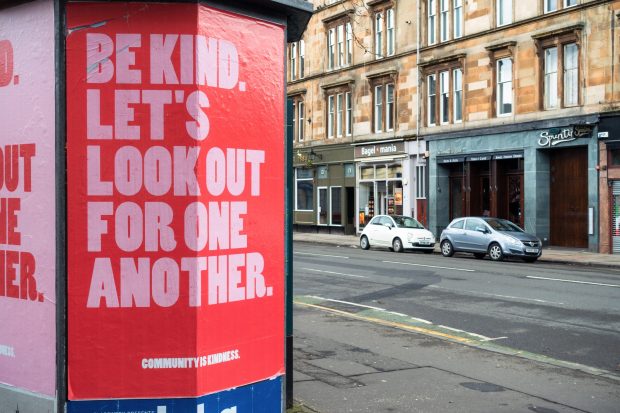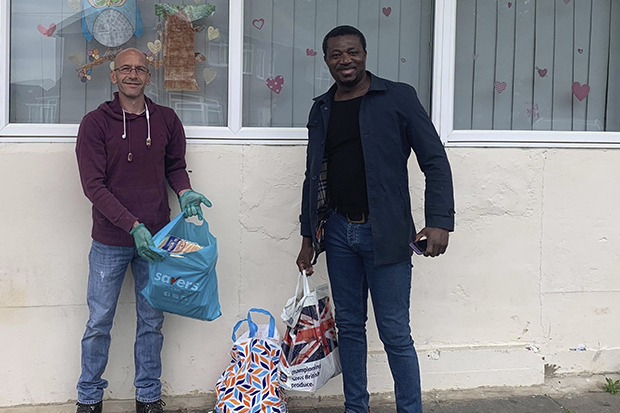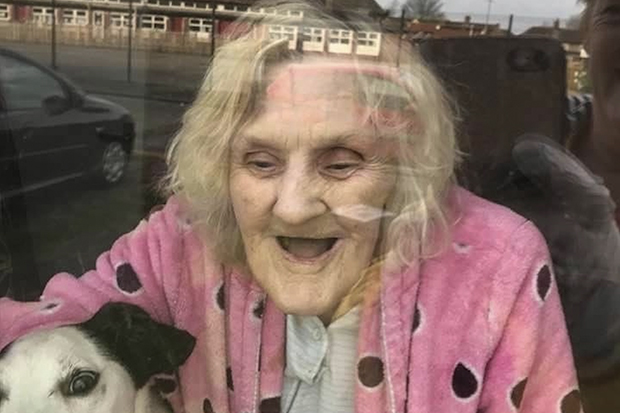
The response to coronavirus (COVID-19) has demonstrated the contribution that communities make to public health. Community life is essential for health and wellbeing, and we are all more aware of the value of social connections, neighbourliness, sense of belonging, control, and mutual trust.
This blog discusses the roles and activities of communities following the outbreak of COVID-19, and their resilience in the face of new challenges posed by this pandemic.
Community action
Since the outbreak of COVID-19, communities have sprung into action. Neighbours are connecting and looking out for each other more than usual, informal support groups in local areas have organised to support people in need, and now there are over 2000 groups listed on the mutual aid website established during the pandemic.
Solidarity is felt in communities across the world towards those who are helping us all. Many people have stepped forward as formal volunteers; in the NHS, community hubs and local charities.
ONS weekly research into social impacts of COVID-19 has seen a steady increase in community spirit over recent weeks;
- nearly two thirds of adults (64.1%) saying other local community members would support them if they needed help during the pandemic (up from 57% previous week)
- three in four adults (77.9%) saying they thought people are doing more to help others since the pandemic (up from 67.9% previous week)
- nearly two in three adults (62.6) had checked in on neighbours who might need help at least once in the last seven days (up from 53.8% previous week)
- over one in three adults (37.5%) had gone shopping or done other tasks for neighbours (up from 27.7% the previous week)


Ensuring no one is left behind
Communities have shown and built their resilience over recent weeks, but extra support is needed to support the seldom heard, isolated and excluded individuals and communities. Not everyone can contribute to or benefit equally from neighbourhood action, and those that are already disadvantaged may find it challenging to maintain resilience and participate in social networks in the face of the outbreak. Volunteer and community organisations play a valuable role here.
The role of the voluntary and community sector (VCS)
The VCS has always been a key player in the public health system, and this is even more evident in the current situation. They are often closer to and better at connecting with marginalised groups than other sectors and are ideally placed to implement more community-centred approaches. Their role in reducing health inequalities is essential. National charities and larger VCS organisations support the vital work of local organisations by helping to co-ordinate efforts across the sector.
Community resilience
Having a strong community infrastructure and supportive social networks are factors that help communities withstand and adapt to shocks. The importance of community resilience during emergencies is recognised nationally and internationally. The UK Community Resilience Development Framework sets out actions for Local Resilience Forums to ensure communities are central to response and recovery. These include identifying local community networks and assessing differing needs, supporting community-led social action and working alongside VCS partners.
International guidelines from the Global Inter-Agency Standing Committee offer further recommendations on the role of organisations in facilitating the conditions for community mobilisation, self-help and social support.
Many factors impact on a community’s ability to be resilient and thrive. The World Health Organisation recommends measuring community resilience by considering the different social, human, cultural, environmental and economic capacities.
Strengthening communities – the role of public health
Understanding community needs and strengths and building local action are part of the public health response and can help build resilience.
We know from our research that it is essential to facilitate the conditions for communities to thrive. This includes:
- the role of community development, especially in marginalised communities, in order to increase people’s control over their health and wellbeing;
- having a strong and co-ordinated voluntary & community sector, reaching out to those in need through responsive and innovative ways;
- ensuring basic needs are met through employment, housing, food, income, natural environment and education, as prerequisites for community engagement and action;
- maintaining two-way communication and decision-making between communities and organisations, to ensure needs and priorities are understood and addressed;
- skilling the workforce in working with communities, using strengths-based approaches and coproduction;
- utilising community-centred approaches to provide support and services, alongside professional-led services;
- coordinating a place-based offer that is integrated across agencies and delivered at a small neighbourhood level.
Maintaining community resilience
The pandemic has not only highlighted the importance of communities but also investing in a community-centred public health system. In order not to lose these gains as we recover from the pandemic it is vital to maintain the centrality of communities and continue to strengthen community resilience through our ongoing efforts to improve the nation’s health and wellbeing.
PHE will be continuing its Healthy Communities work to support localities in taking a whole system approach to community-centred public health. We have a growing library of practice examples and welcome additions related to community-centred work during COVID-19. Communities everywhere are showing care, compassion and co-operation to get us through these difficult times. During this public health crisis, the voluntary and community sector and organisations who have responded so expertly and our thanks and recognition must go to them.
Some resources you may find helpful:
Thrive in Trying Times free online learning programme for community mobilisation and wellbeing during COVID-19 from FutureLearn.
Community Mapping Tool from Tempo Time Credits
Online Engagement: A guide to creating and running virtual meetings and events - Guide from the National Co-ordinating Centre for Public Engagement.
Owning the Future report: After COVID-19, a new era of community wealth building, from CLES.
Downloadable poster courtesy of Eden Project Communities and partners working together to support communities during COVID-19

1 comment
Comment by sara joanne brown posted on
I think everyone has done very well in these trying times -that is to say those who have obeyed the rules all the way through have bought communities together
We should make a new clapping - for all of the stores who have stepped up to keep our country fed & watered while dealing with some unco-operative customers & making sure social distancing rules have been adhered to
keep safe every one